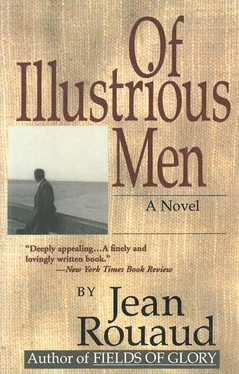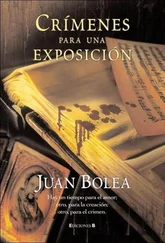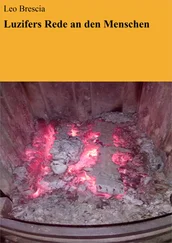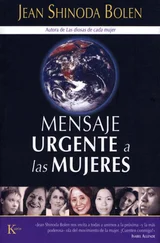Jean Rouaud - Of Illustrious Men
Здесь есть возможность читать онлайн «Jean Rouaud - Of Illustrious Men» весь текст электронной книги совершенно бесплатно (целиком полную версию без сокращений). В некоторых случаях можно слушать аудио, скачать через торрент в формате fb2 и присутствует краткое содержание. Год выпуска: 2011, Издательство: Arcade Publishing, Жанр: Современная проза, на английском языке. Описание произведения, (предисловие) а так же отзывы посетителей доступны на портале библиотеки ЛибКат.
- Название:Of Illustrious Men
- Автор:
- Издательство:Arcade Publishing
- Жанр:
- Год:2011
- ISBN:нет данных
- Рейтинг книги:4 / 5. Голосов: 1
-
Избранное:Добавить в избранное
- Отзывы:
-
Ваша оценка:
- 80
- 1
- 2
- 3
- 4
- 5
Of Illustrious Men: краткое содержание, описание и аннотация
Предлагаем к чтению аннотацию, описание, краткое содержание или предисловие (зависит от того, что написал сам автор книги «Of Illustrious Men»). Если вы не нашли необходимую информацию о книге — напишите в комментариях, мы постараемся отыскать её.
Of Illustrious Men — читать онлайн бесплатно полную книгу (весь текст) целиком
Ниже представлен текст книги, разбитый по страницам. Система сохранения места последней прочитанной страницы, позволяет с удобством читать онлайн бесплатно книгу «Of Illustrious Men», без необходимости каждый раз заново искать на чём Вы остановились. Поставьте закладку, и сможете в любой момент перейти на страницу, на которой закончили чтение.
Интервал:
Закладка:
After the chocolate mousse, we got back into the Dyna and drove off in the direction of Malestroit, where we wandered about among the old Gothic and Renaissance half-timbered houses with the grotesque carvings on their facades, one with a strange pelican, like in the comic strip we delighted in, and then stopped at the convent where we admired the little Lord Jesus as he appeared to a novice in ecstasy: pink, wearing an exiguous diaper, and with Alexandrian curls over his forehead. Lying on his golden straw, he is opening his arms like His Holiness the Pope and raising his head, which demands a strenuous effort of the back of the neck and the abdominal muscles of which only babies with a great destiny in store seem capable. At the entrance, we bought a postcard, which when we got home Father presented to his pious aunt, our universal Aunt Marie, who lost no time in inserting the beloved image into one of her innumerable prayer books. Perhaps he was forestalling the reproaches that she would not fail to heap upon him when she discovered what we were bringing back, what in fact had been the reason for our journey: our loot.
We had started off again through the labyrinth of the Breton countryside. The powerful bulldozers on this Sunday “day of rest” were getting their breath back near a hedge they had flattened, their shovels resting on the ground, their red mass standing out like great bleeding gashes against the dark green of the landscape. The sky was overcast; it was drizzling. Through the regular to-ing and fro-ing of the windshield wipers, the driver pointed to a chapel spire rising up from the yellow palette of a field of colza. The roar of the engine rendered explanations impossible, but by the way he emphasized his gesture we realized that we were reaching our goal.
The granite spire surmounted a massive tower separated from the chapel, which lay in the hollow of an amphitheater of greenery, so that as you approached you could imagine it was half buried, a victim of its own mass or of a landslide, and this foreshortening of its walls made it look even more like a reliquary, a box of precious bones. The little path, which had been annexed by the hens from a neighboring farm, was on a level with its stained-glass windows. If you had taken it at a run, with a slightly perilous leap you could have reached its cornice and the smiling angel, wearing a saucy little hat of green moss, who seemed to have taken refuge on the roof in anticipation of the day when the church would be engulfed for good. We walked down the stone steps leading to the chapel. Its entrance was guarded by a fountain whose overflow ran into three ponds in the shape of an ace of clubs. In a rusty tin can, there was a bunch of nearly dead wildflowers. Instead of entering through the porch, we walked around the building down the little path squeezed between the wall and the embankment along the road until we came to the apse, whose base was invaded by clumps of hydrangea. Our guide asked us to pull the big blue flowers away from the wall. Mother warned us, you’ll get wet, and when we hesitated, he decided to plunge into the dripping flowers — Joseph, you’ll get dirty — then got a grip on something heavy, leaned backward with all his weight, trying to get a solid foothold on the slippery grass — Joseph, you’re mad — and began to lug a huge stone out of the bush, rolling it over and over. In actual fact it was a truncated pyramidal block, and now that we could get a better look at it, we saw that it was a carved capital whose patterns and figures had been eroded by time and didn’t come from the chapel — which was itself perfectly preserved and as far as we could see all in one piece — but perhaps came from an earlier building. It could have been judged too barbaric to be reused, not refined enough for the elegance of the Renaissance, and abandoned near the site where our gold miner had dug it out and promptly hidden it, immediately imagining how he could turn it to account, this time not seeing it as something to add to the chaos of the stones casually dumped between the plants in our rockery, but as a part of history, thus obliging the long march of civilization to make a little detour through our garden. This prestigious gesture would call attention to the fact that we all, whether clog makers or stonecutters, have a right to our share of recognition.
At the bottom of the garden, between our aunt’s little house and the garage, in the middle of an empty space surrounded by high walls, there are four reinforced-concrete poles, crowned with iron spikes and arranged in a square, which seem to mark the perimeter of an atrium or a cloister. They were originally intended to support the roof of a vast warehouse, the old one being thought much too small. This ambitious plan for future expansion had been interrupted by the war (the second one), by the death of the planner (Pierre, Joseph’s father and Marie’s brother), and by the recent and more rigorous system of taxation (before 1939, Pierre only had to pay for a business license and refused to contribute to the tax levied to finance the war effort, considering that he had already given quite enough to war — four years in the trenches, for which his reward was an ex-serviceman’s pension that just about covered his yearly expenditure on tobacco). And the most telling reason for the abandonment of the project was that the more times changed, the more untenable became the situation of wholesalers in small rural communities. Now that the improvement of the roads had reduced the necessity for middlemen between manufacturers and retailers, this was no time to increase your stock and risk having it left on your hands.
Along with the concrete poles, there remains another vestige of the marvelous grandpaternal project: a portico of hollow bricks on a concrete framework that was to have covered its entrance. At the sight of this strange construction, the eye hesitates. Is it a ruined building, a small abandoned factory, dating from between the wars? Or an unfinished piece of architecture? And the roof? Blown off or never put on? The high walls force you to raise your eyes. The absence of any roofing reveals a wide rectangle of sky, with the tapering top of a cypress tree piercing it like a paintbrush. It contains very little blue that might make you hope for a vertical glimpse of the infinite beyond, and what patches of blue there are seem like mere puddles among the massive clouds that come billowing in from the Atlantic, or which unravel, not having been properly carded, or which, frothy little clue, herald the rainy days to come. A parsimonious, pale, fresco-like blue. A miserly blue, compared to the dazzling splendor of the grays, which range from pearl to ash, from chinchilla to soot, an ever-changing wash superimposed on the mists. If watching the passage of the clouds makes you feel dizzy, look down, open an oyster, decorticate a mussel: all the variegated hues of the Atlantic are registered in the mother-of-pearl of these shellfish. In the summer, this meadow-in-the-sky at the bottom of our garden is invaded by colonies of swifts and swallows that establish their second residence in the roof of the church and spend their holidays describing playful arabesques in the sky, a supple corporate body undulating like paramecia and filling the handful of fine days with their strident little cries. When you look down again, you catch another glimpse of the metal spikes sticking out of the concrete poles. This is a sign. A clear sign that the work really is unfinished.
Joseph’s idea was Herculean. As he explained to us, he was going to saw off the spikes, disguise the poles as columns, and make the top of one of them the resting place for the capital that had been waiting in the Breton soil for some five or six centuries, hoping to regain its height. In the center, between the four columns, he was going to dig a shallow basin and line it with mosaic or bits of broken crockery. Just imagine, Hadrian’s villa in our garden! The great audacious architect was going to mix centuries and styles and finish off the unfinished building by turning it into a ruin. When our aunt’s pious statuettes had been embedded in the wall to perfect the picture, no one would have any idea of what was what, or which god they were supposed to worship. Over Random, on the map of Brittany, we would stick a diamond-headed pin.
Читать дальшеИнтервал:
Закладка:
Похожие книги на «Of Illustrious Men»
Представляем Вашему вниманию похожие книги на «Of Illustrious Men» списком для выбора. Мы отобрали схожую по названию и смыслу литературу в надежде предоставить читателям больше вариантов отыскать новые, интересные, ещё непрочитанные произведения.
Обсуждение, отзывы о книге «Of Illustrious Men» и просто собственные мнения читателей. Оставьте ваши комментарии, напишите, что Вы думаете о произведении, его смысле или главных героях. Укажите что конкретно понравилось, а что нет, и почему Вы так считаете.












